Storm Arwen: Government told to heed 'cascading crises' risk
- Published
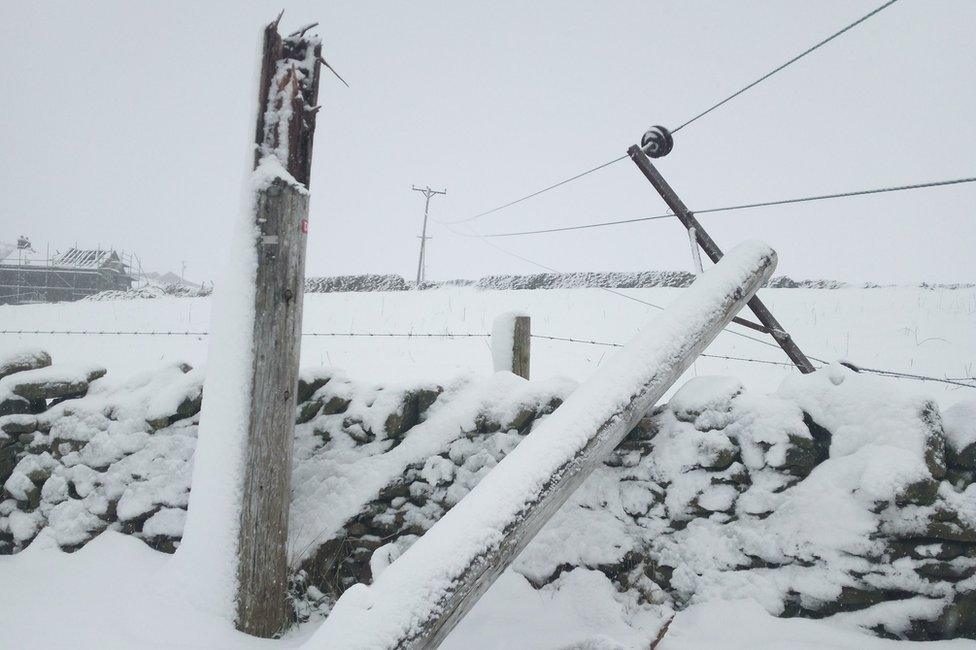
The Storm Arwen power cuts were compounded by heavy snow in parts of northern England
Events such as Storm Arwen show the risk of "cascading crises", a report by a committee of MPs and peers has said.
Mass power cuts across northern England last November also left people without communications and water supplies.
The Joint Committee on the National Security Strategy said the government was not looking at how events combined to form a greater risk.
Chair Dame Margaret Beckett said no ministers had "focused responsibility" for making infrastructure resilient.
"The thing I find most disturbing is the lack of evidence that anyone in government is focusing on how all the impacts can come together, creating cascading crises," she said.
"That affects our national security."
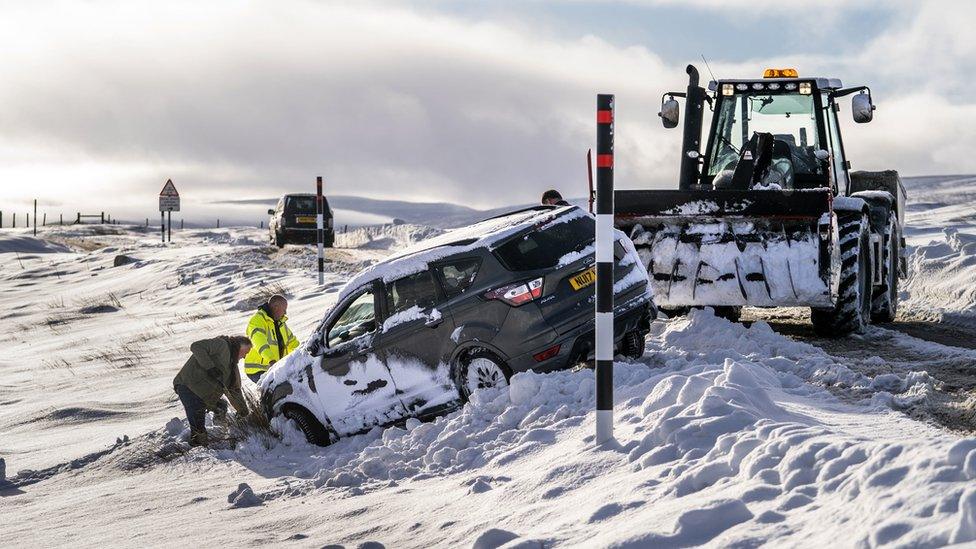
The report pointed out power cuts could have an effect on emergency services
The report, external said the different parts of the infrastructure were "highly interdependent" and the shutdown of one could "cause knock-on effects on multiple other sectors".
It said Storm Arwen was a "stark illustration" of this, citing households without power also being left with no way of contacting emergency services because their BT Digital Voice phone lines were reliant on electricity to work.
It noted that many of these households also had unreliable mobile phone reception and it was "unclear" which parts of government knew about Digital Voice before it was implemented, particularly those concerned with critical network resilience.
The report welcomed the government's response to Storm Arwen but said: "Ministers should have anticipated and been better prepared for such an event, through proactive adaptation efforts and proper crisis planning."
It also noted that the military was often drafted in to help during severe weather events but questioned whether this would be possible in the future, given planned cuts to the armed forces and increased global instability, including the war in Ukraine.
In June, regulator Ofgem told energy firms to "get ready for winter".
Chief executive officer Jonathan Brearley said they had not been well prepared for the storm and, in future, should maintain and invest more in the network and provide clearer customer communication.

Follow BBC North East & Cumbria on Twitter, external, Facebook, external and Instagram, external. Send your story ideas to northeastandcumbria@bbc.co.uk, external.
Related topics
- Published27 October 2022
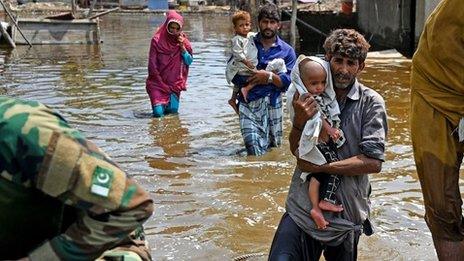
- Published9 June 2022
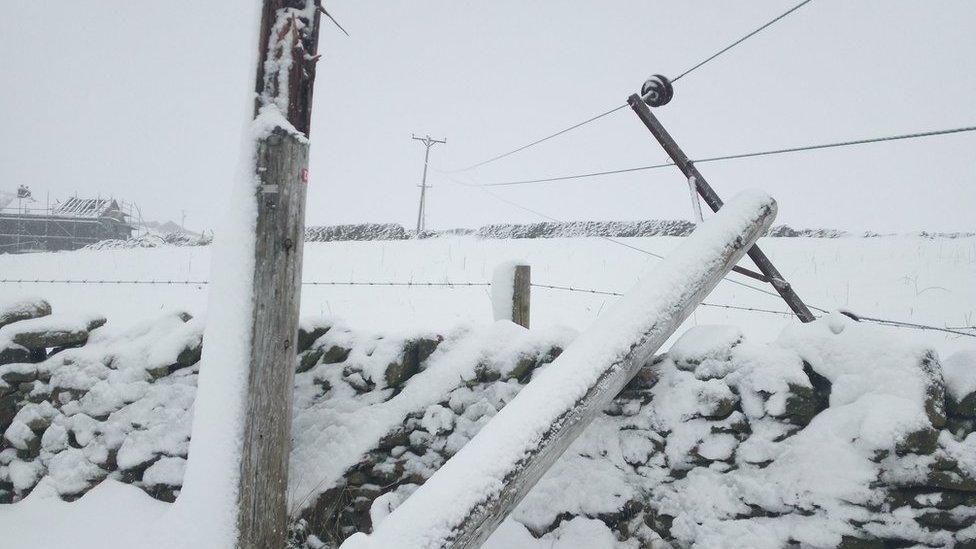
- Published9 June 2022

- Published26 February 2022
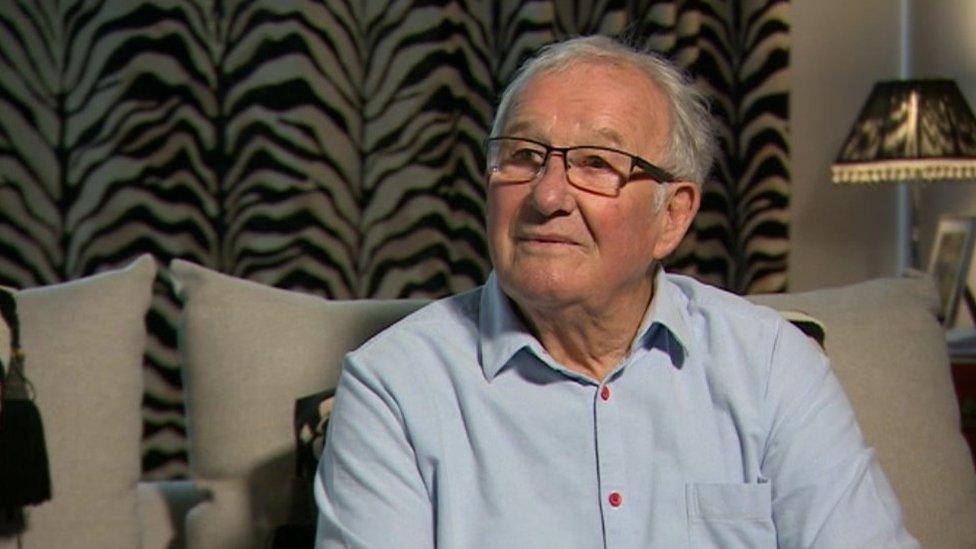
- Published28 January 2022
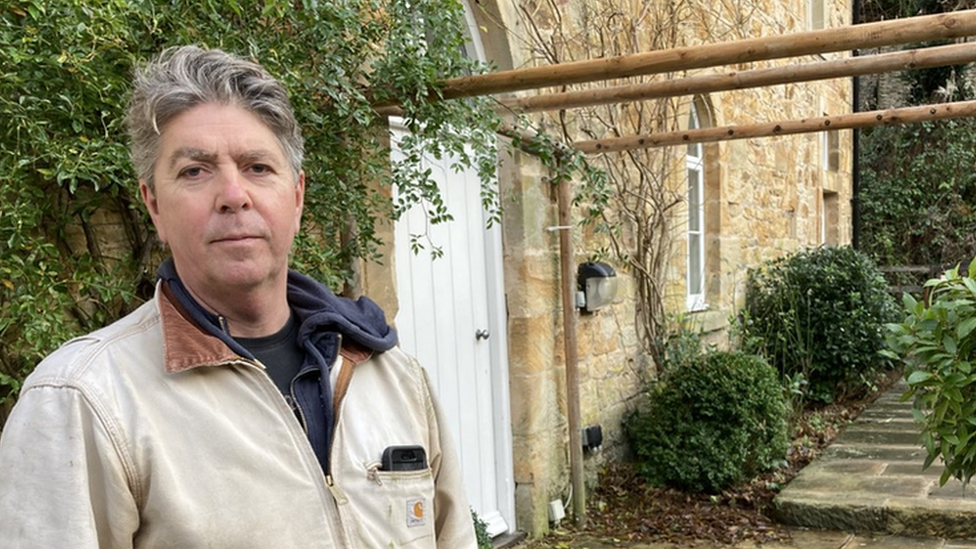
- Published30 November 2021
